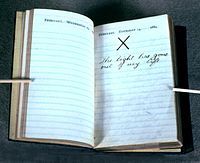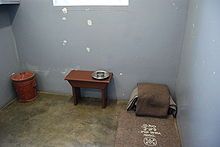“Punting the Pundits” is an Open Thread. It is a selection of editorials and opinions from around the news medium and the internet blogs. The intent is to provide a forum for your reactions and opinions, not just to the opinions presented, but to what ever you find important.
Thanks to ek hornbeck, click on the link and you can access all the past “Punting the Pundits”.
Follow us on Twitter @StarsHollowGzt
Jessica Valenti: Marriage equality didn’t end homophobia. LGBT people face discrimination every day
As state after state makes same-sex marriage legal, it’s easy to be placated by the notion that we’re nearing true equality. For heterosexual cisgender people, marriage equality has become a self-congratulatory rallying point, a string of victories we point at to prove that things can, in fact, get better. We love the wedding pictures and the joy of excited couples together for decades who are finally able to get married.
But let’s not make it rain celebratory rice just yet. Marriage equality is far from the only indicator of how well we’re doing in tackling LGBT issues, and, despite some policy hurdles we’ve surmounted, homophobia in all its forms remains a pervasive force in LGBT people’s daily lives – even in so-called progressive enclaves.
Steven W. Thrasher: ‘Everyone’s a little bit racist’ doesn’t excuse ongoing police violence
On Thursday, FBI director James Comey gave a long and searching speech called “Hard Truths: Law Enforcement and Race” – complete with deep meditations on race, predictable but annoying equivocations, and harmful misdirection about the violence of policing.
It also included – in an unquestionable first for an FBI director giving a public speech – quotes from the oversexed, cursing puppets of the Broadway musical Avenue Q. (Who knows if FBI brass have quoted them in private before; if only J Edgar Hoover could have lived to see this!) [..]
And while it was encouraging to hear Comey say that Americans need some actual goddamned government statistics on how often cops kill people rather than relying upon sites like KilledByPolice.net, it didn’t exactly fill me with confidence that he was so convinced only after he “listened to a thoughtful big city police chief express his frustration with that lack of reliable data” who “didn’t know whether the Ferguson police shot one person a week, one a year, or one a century.”
Does it matter? Isn’t one lost life one too many
“Where will I get my news each night,” lamented Bill Clinton this week. This might have been a reaction to the fall from grace of Brian Williams, America’s top-rated news anchor, who was suspended for embellishing details of his adventures in Iraq. In fact the former US president was anticipating withdrawal symptoms for the impending departure of the comedian Jon Stewart, who – on the same day as Williams’s disgrace – announced that he will step down as the Daily Show host. [..]
Bill Clinton does not mourn alone.
Eugene Robinson: Obama’s Ambivalent War Logic
President Obama’s request to Congress for authority to use military force against the Islamic State explains his view of why to fight this war. But it doesn’t really tell us how.
Obama has asked to be liberated and constrained at the same time. He wants no geographical boundaries placed on his ability to go after the Islamic State and “associated persons or forces.” But he also asks that Congress rule out “enduring offensive ground combat operations” and wants the war authority to expire after three years.
This is walking an awfully fine line. One has to wonder whether the president is trying to satisfy both hawks and doves in Congress-or displaying his own ambivalence about using military force in a situation where, he has said, there is “no American military solution.”
David Sirota: Border Security Is Not an Immigration Cure-All
With the opening of the new Congress, Republican lawmakers have been promising a renewed focus on border security as a supposed cure-all for America’s broken immigration system. Left unaddressed, though, is a simple question: How does border security address the status of millions of undocumented immigrants currently in the United States?
The answer is that it probably won’t, according to a person who knows a thing or two about immigration: Felipe Calderon.
In a recent interview, the former Mexican president told me that he believes the crackdown on undocumented immigration combined with intensified border security has prompted large numbers of undocumented Mexican laborers to remain in the U.S. permanently-even as many prefer to go home-out of fear they will never be able to return.
Joe Conason: Big Lies, Little Lies and the Punishment of Brian Williams
The harshest penalties usually tend to be brutal, vengeful and excessive-even when the offender is a celebrity journalist like Brian Williams. Suspended without pay from his post as the “NBC Nightly News” anchor for six months, Williams may be facing the end of his career in television news, which would be roughly equivalent to capital punishment.
Williams is in the public dock for telling a false story about his experiences covering the American invasion of Iraq; the disclosure humiliated him, his colleagues and his network when exposed. For the time being, at least, he has lost the trust of many in his audience. Enforced absence from the job he loves-and wanted all his life-is a sanction that will sting far more than the barbed jokes, ugly headlines and lost millions in salary. Off air, he may find time to engage in serious introspection, issue a forthright apology and hope for redemption.
Troubling as his transgression was, I nevertheless hope for his redemption, too.



 On this day in 1633, Italian philosopher, astronomer and mathematician
On this day in 1633, Italian philosopher, astronomer and mathematician  On this day in 1990,
On this day in 1990,  Mandela was imprisoned on
Mandela was imprisoned on
Recent Comments